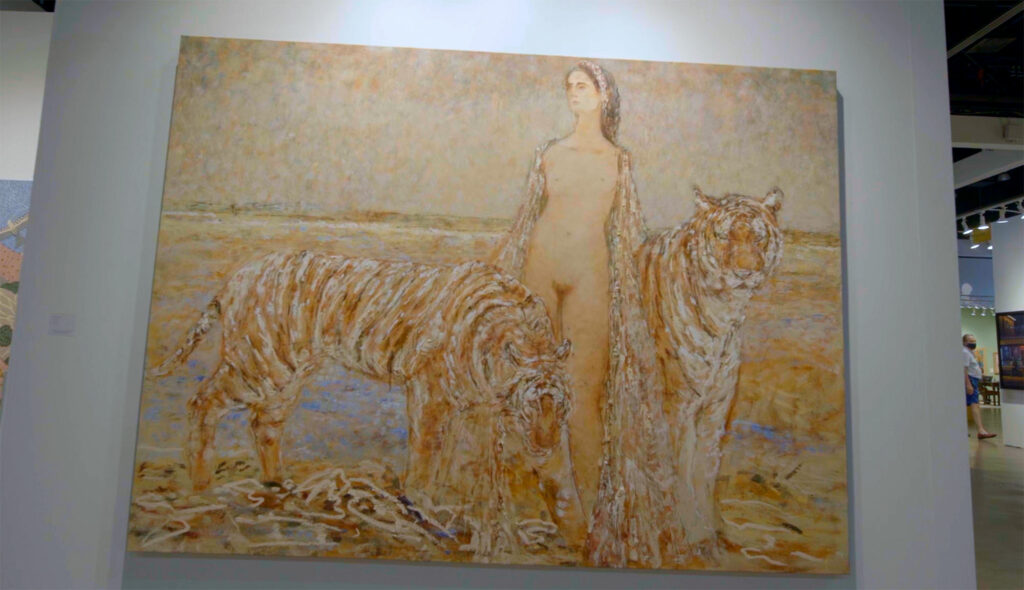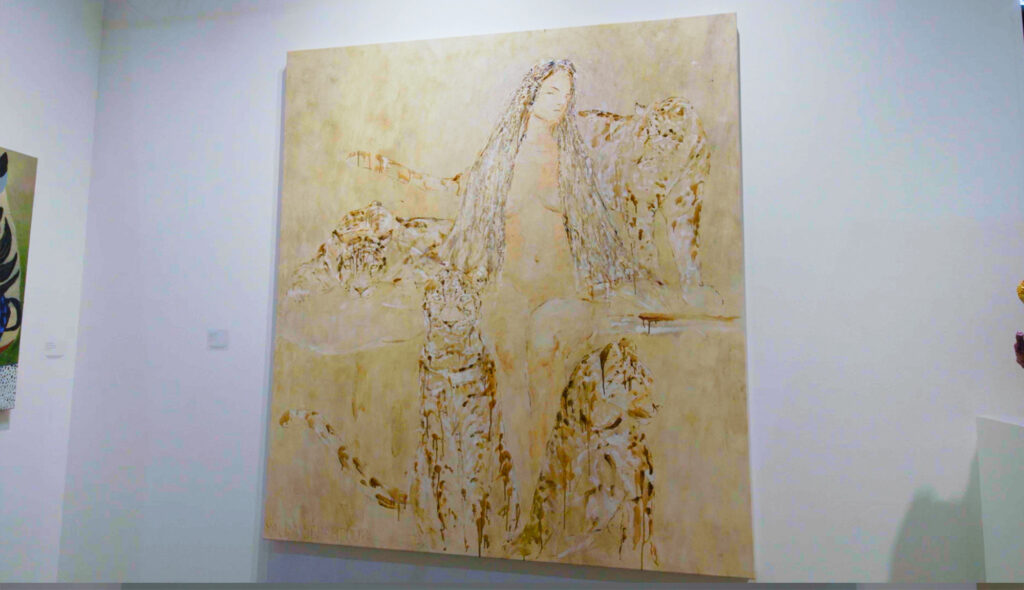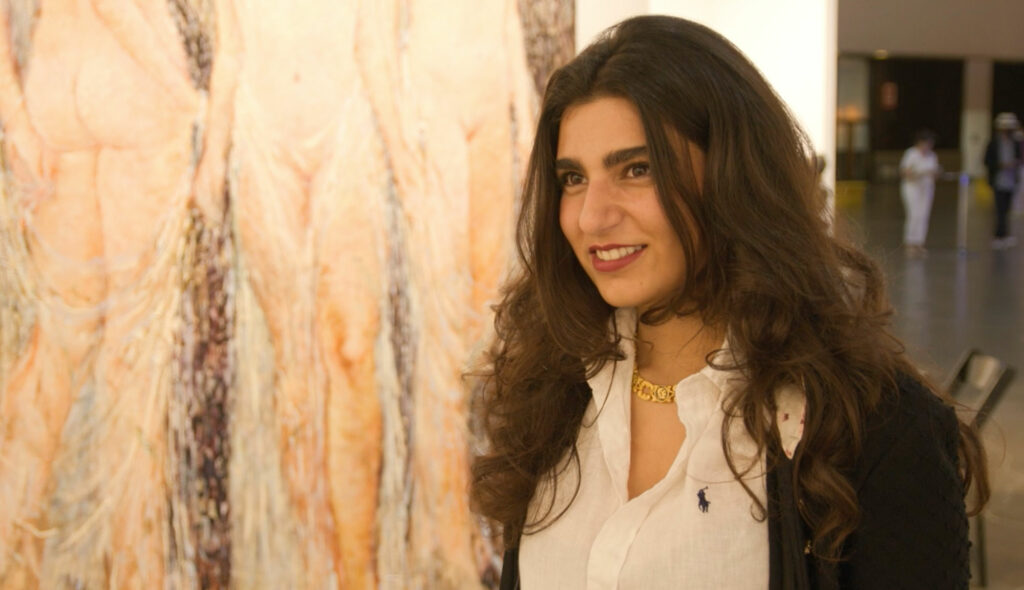Interview: Yalda Sepahpour
What is success for you as an artist?
How did you come upon creating your work specifically?
I have an Iranian background and am inspired by powerful women actually making a difference—such as Malala Yousafzai fighting for education rights, Kurdish women fighting ISIS, and those who embrace femininity. That was the start of my inspiration for creating these paintings. I was fortunate enough to be introduced to Simard Bilodeau Contemporary. They were right across from my studio. That’s when we started the whole art journey together.
How important is gallery representation for you?
Gallery representation is extremely important for artists. The reason for that is they create opportunities such as bringing us to events such as the LA Art Show and also introducing us to certain clients. But for me, it has been really, really special because the working relationship has also been very, very close and there has been a lot of trust. I think that trust also makes the work much more enjoyable. You can also focus only on the work, which is really important.


Let's talk about your artistic development, where you came from, where you're at, and where you're going.
My artist development has been a very interesting route, which I really did not expect. When I started my professional career, I was still in art school, and I met Simard Bilodeau Contemporary. First, my art was very, very flat; it was very just really trying to send the message. And then as I’m continued to paint over the years, and became more familiar with the medium, it’s been an amazing journey. Because you’re also learning all these different ways of being able to use the oil paintings. As I continue to grow, it’s my subconscious that you see in the work— and it’s becoming a little bit more refined. As an artist, you see more faults in your work, and you’re able to find more solutions to make it more refined. So that’s pretty much the journey that I have now.

What habits help and hinder you as an artist?
I would say habits that would make you less successful are procrastination and thinking too much. You just have to start from somewhere. It’s never going to be perfect, but when you start, you can see more faults and you can improvise. And I would say that the most important thing would be to just start. That’s the most important thing—and being consistent.
Why are you creating?
It’s little bit of an egotistical thing to say, but for me, the reason I creating art is really for myself. I mean, there are certain things that I do want to show to the world. I think it’s really important to show that women and men are different, there’s nothing wrong with that. It’s good to celebrate our differences and also show the strength of femininity and also the different aspects of women. I think it’s really, really important. And now, in feminism, some of it can be very, very negative, and I think that it’s good to show that there are also other people who see it as a way of creating equal rights rather than outdoing each other.
For me, that’s really the main message, and also creating awareness towards endangered species but in a positive manner, rather than showing something very vulgar. Positivity is something that I like to focus on. I like to create art that makes people excited even if it’s a negative topic for them—to create sort of positive reaction and hopefully it’ll inspire somebody else and also grow the art. I think that contemporary art is a little bit behind in terms of painting, and I think that if I can do anything to kind of continue the growth, and I’m not saying that I do do that right now, but it’s something that’s the goal, to create sincere and timeless work, which I don’t think there’s enough of.


